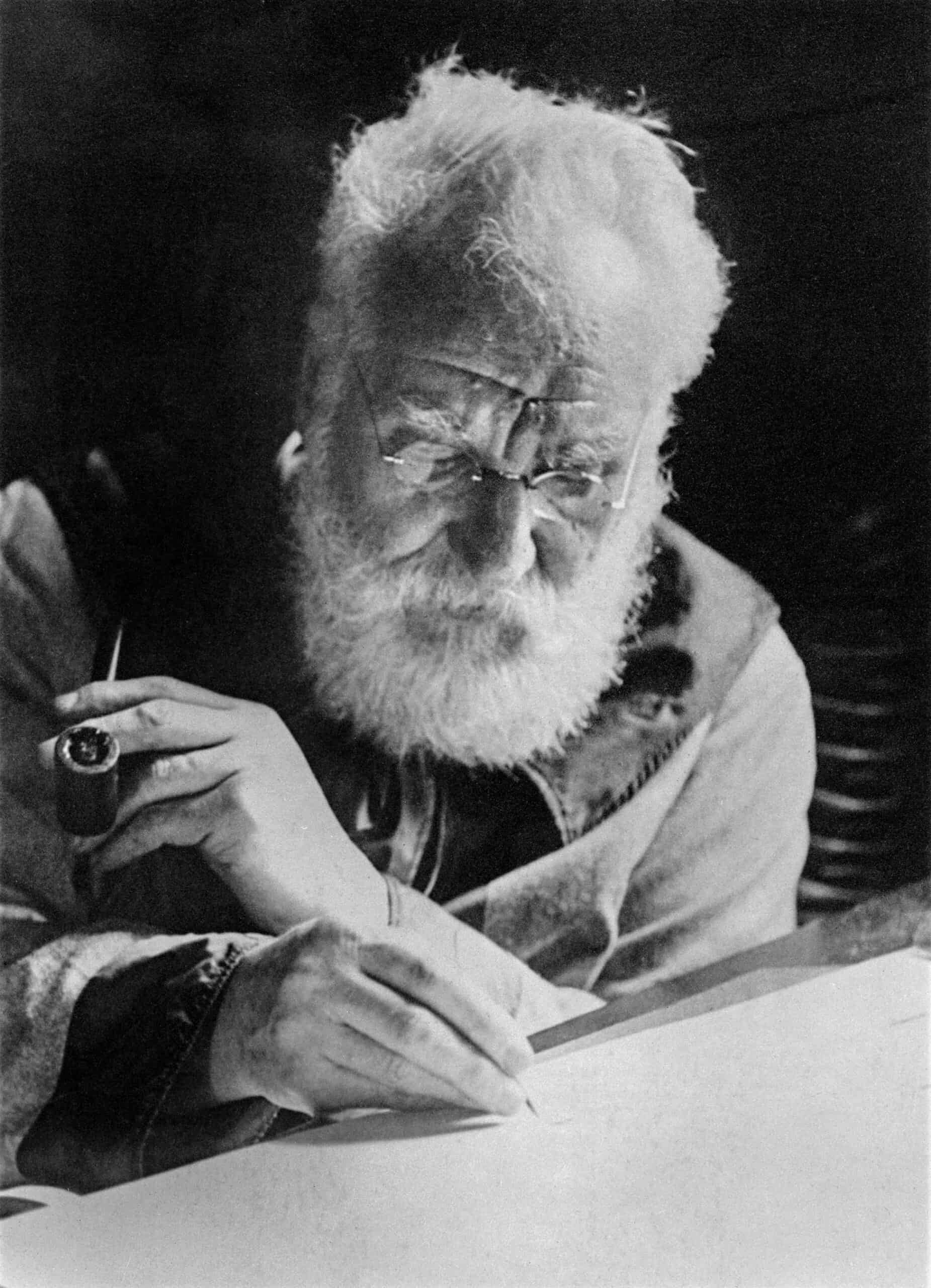The oldest phones in history are absolutely archaic by today’s standards. They’re a reminder of a time when making a simple phone call came with certain concessions. For one, being at home was necessary. Secondly, it was a waste of time if the person on the receiving end wasn’t home as well.
Emergencies on the side of the road were dependent on a nearby police officer or local town payphone. The good old days of having to overcome, adapt, and improvise are long behind us, with everyone we need to speak to and every bit of information we need being a simple tap away.
As advanced and incredible as technology is today, we still owe it all to the early inventors and inventions of yesterday. If not for Alexander Graham Bell, Elisha Gray, Almon Stowger, Henry Dreyfuss, and a handful of extraordinary companies, we might still be communicating via messenger pigeon (which actually sounds kind of fun).
Let’s explore the oldest phones in history and the minds and resources behind their creation!
#1: Acoustic Phone (Lover’s Phone)
| Inventor | Often credited to Robert Hooke |
| Year Produced | Mid to late 1600s to 1800s |
| Company | N/A |
| Country | England |
| Year Patented | 1667 (tentatively) |
Even today, an acoustic telephone is the simplest phone to operate. All you need is a length of string and two metal cans (such as an empty vegetable can). Each user stands on one end. The speaker speaks directly into one can while the receiver listens by placing their ear to the other can.
When you speak into one of the cans, the sound transfers from the air into the diaphragm and then the string. It works remarkably well and you can even wrap the string around physical objects along the way if you need to change directions.
Though Robert Hooke (a 17th-century polymath and physicist) gets all the credit for the acoustic phone, the Smithsonian features a stretched-hide variation of the same technology that dates back to the 7th century.
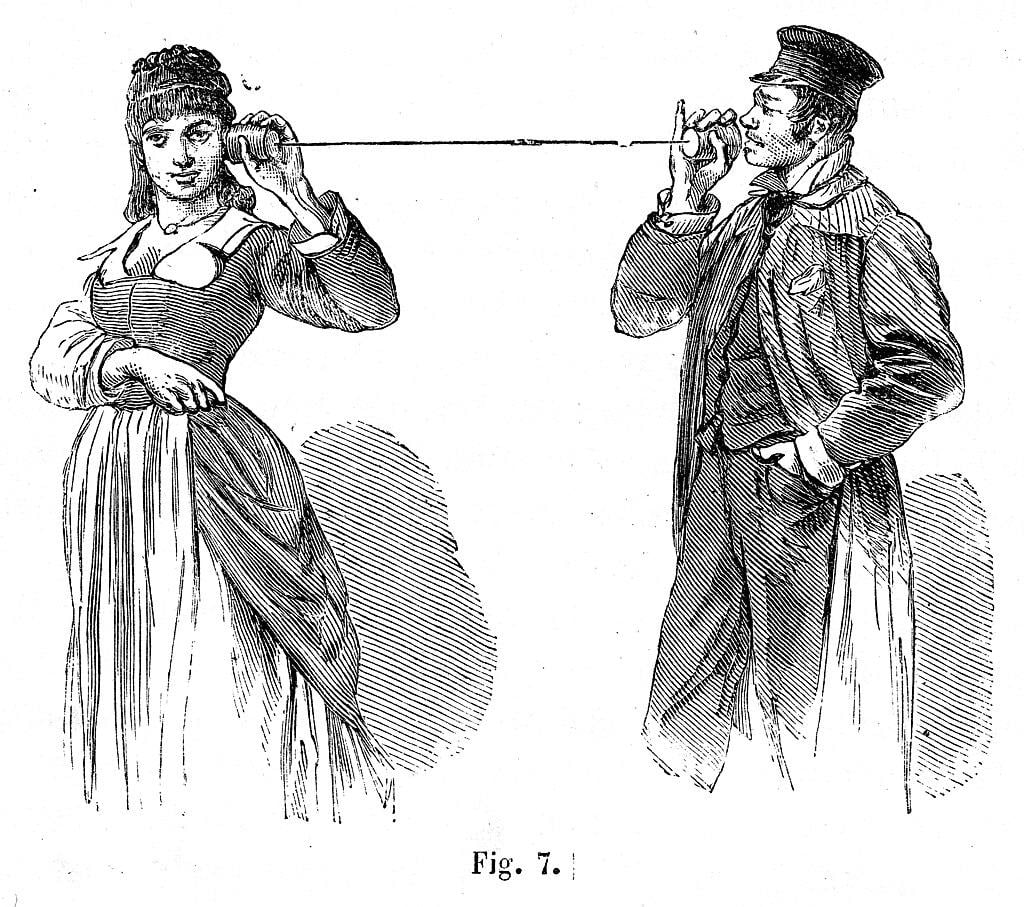
#2: Speaking Tube
| Inventor | Unknown |
| Year Produced | 1600s to present |
| Company | N/A |
| Country | N/A |
| Year Patented | N/A |
The speaking tube is a variation on much earlier devices. The exception is that speaking tubes were primarily for flight and earlier versions were useful in maritime communications. This method of communication is similar to acoustic string phones, with brass tubes replacing the string.
The most interesting fact about speaking tubes is that they are still in use today. This is especially true with MRIs since electronic wiring interferes with the scanning process. A portion of the tubes are useful in wireless communications as well.
Another variation of the original speaking tube is a pneumatic intercom. Though the technology is far more extensive today, the concept remains the same. It’s hard to talk about the oldest phones in history without giving the invention of the speaking tunes its due. It’s amazing how far technology has come!
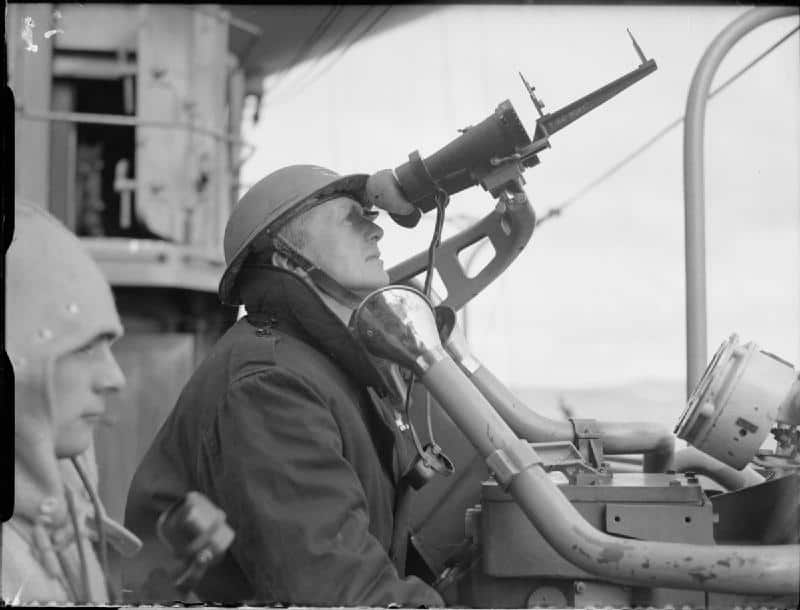
#3: Bell Telephone
| Inventor | Alexander Graham Bell |
| Year Produced | 1876 |
| Company | Bell Telephone Company (formed in 1877 and later known as AT&T) |
| Country | USA |
| Patented | February 14, 1876 |
The invention of the Bell Box telephone has long been a source of controversy, with Elisha Gray, a competing inventor in Bell’s day, claiming that he was the first to patent the device. Regardless, Bell gets all the credit today and, with additional information on the historical legal dispute between the two, Bell has even more support.
Despite Elisha Gray’s loss, there is no disputing his own brilliance and contribution to the telephone in the late 19th century. Of the three on the list so far, the Bell Box Telephone did more for the advancement of the telephone industry (and eventually cellphone technology) than any other invention in the 19th century or the turn of the 20th.
The original Bell Box includes a diaphragm, two electromagnets, and an additional magnet shaped like a horseshoe. Soundwaves through the diaphragm convert to current through the electromagnets. The current passes through the wires and reverses the process on the other end, with sound emanating from the receiver.
In its purest sense, the Bell Box Telephone is truly one of the oldest phones in history. Though it lacks most of the features that make a phone recognizable, there’s little doubting its capability.
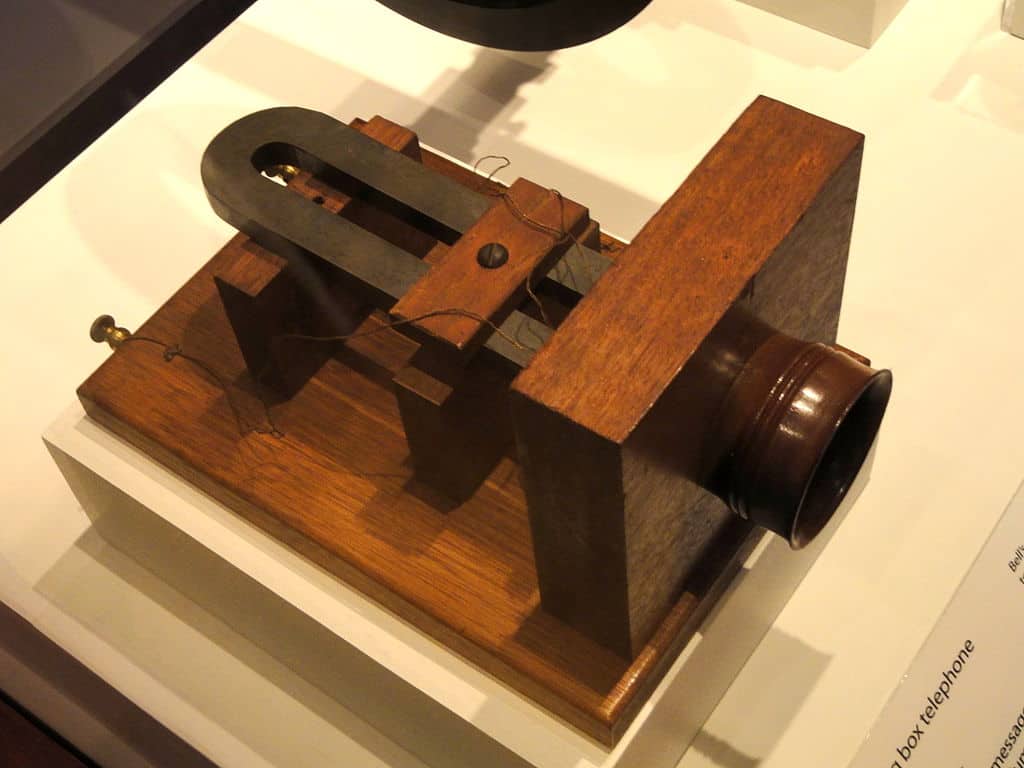
#4: Candlestick Telephone
| Inventor | Almon Stowger/Stromberg-Carlson Co. |
| Year Produced | 1890 |
| Company | Stromberg-Carlson Co. (tentatively) |
| Country | USA |
| Year Patented | Possibly 1904 with an existing patent in 1910 |
When it comes to these old phones, it’s often difficult to tell exactly who deserves credit for the invention. Records of such things were not as well-documented as they are today and much is lost to history.
We do know that either Almon Stowger or the minds at the Stromberg-Carlson Company were behind it. The candlestick phone is also known as the desk phone, with the terminology changing over the years.
The candlestick is the first phone to combine the receiver and mouthpiece on a single device, with the receiver detaching from a cradle and held to the ear during phone calls.
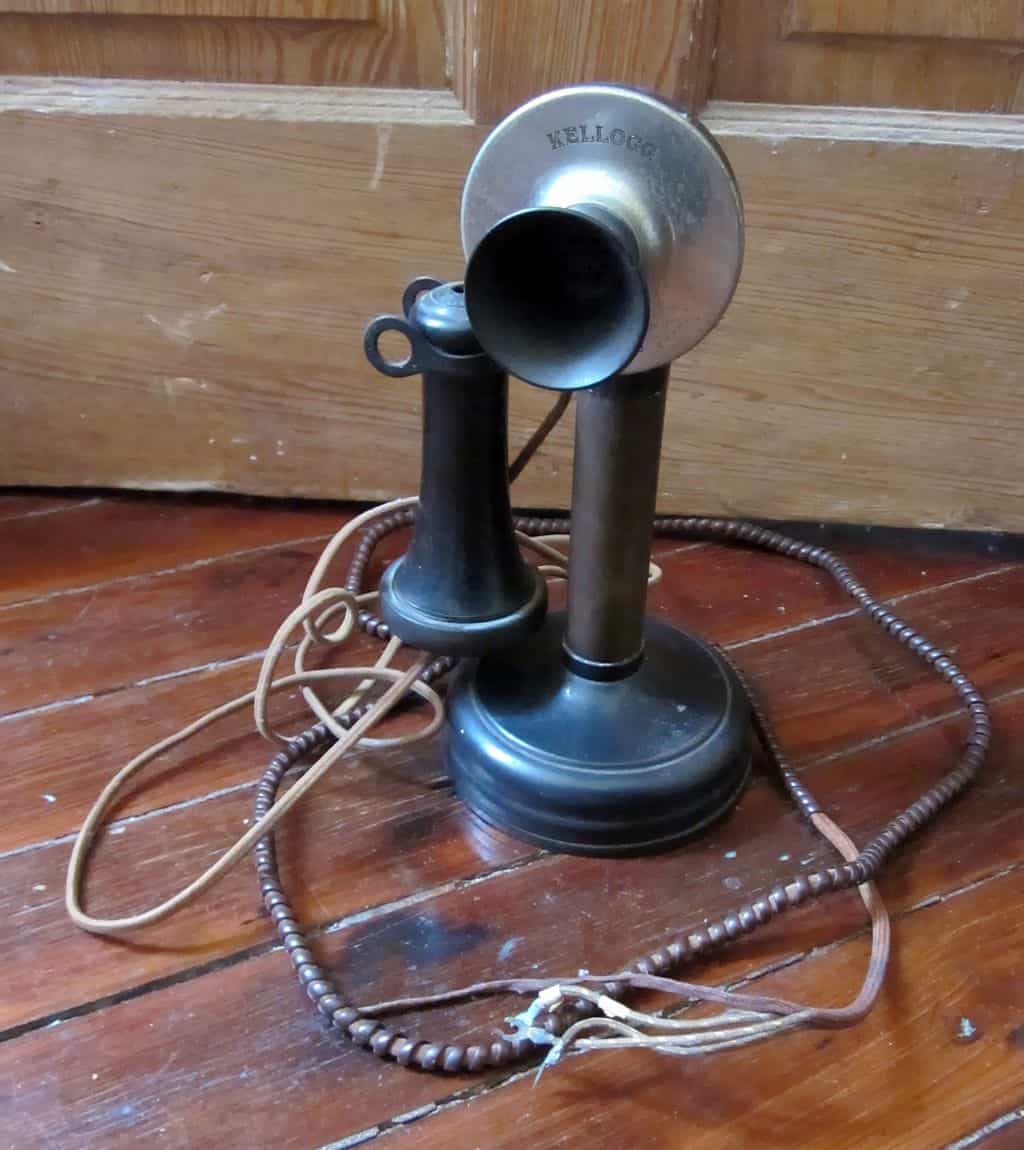
#5: Desktop Cradle Telephone
| Inventor | Bell System |
| Year Produced | 1927 |
| Company | AT&T |
| Country | USA |
| Year Patented | 1927 |
The desktop phones of the 1920s were mostly of the model 102 and 202 variants from Western Electric. Most of the pics today don’t show the entire picture. These desktop phones feature an accompanying box and the phone line runs from the phone itself to the box.
The box features two round bells with a brass hammer between them and contains the induction coil. When these phones rang, half the neighborhood was immediately aware of it. The headsets were some of the first to combine the receiver and the diaphragm into a single device.
In fact, minus the box, this 1920s variation is instantly recognizable as a telephone. It features rotary dials, which were eventually replaced by buttons in the 1980s.
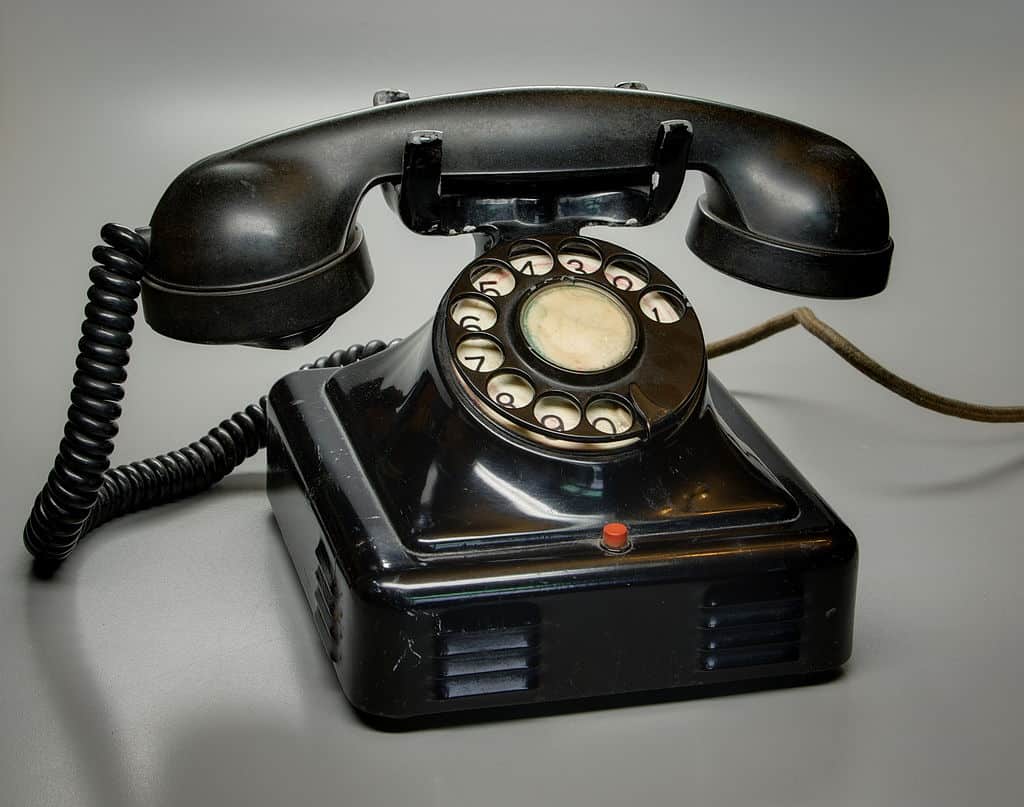
#6: Western Electric Type 500
| Inventor | Western Electric, Henry Dreyfuss |
| Year Produced | 1949 |
| Company | Western Electric |
| Country | USA |
| Years Patented | Parts patented in 1946, 1948, and 1949 |
Of all the oldest phones in history, the Western Electric Type 500 (along with all of the similar designs it inspired) is one of the most well-known and popular. For its day, it was a marvelous piece of technology, combining all of the complicated (previously large) components of a phone into a tight, compact box.
Though it features the rotary dial that emits the nearly inaudible pulses required to connect it to the right place, it was cutting-edge for its time. It also features the numbers on the outside of the rotary dial, which was huge in its day because a dialer could see what they were doing.
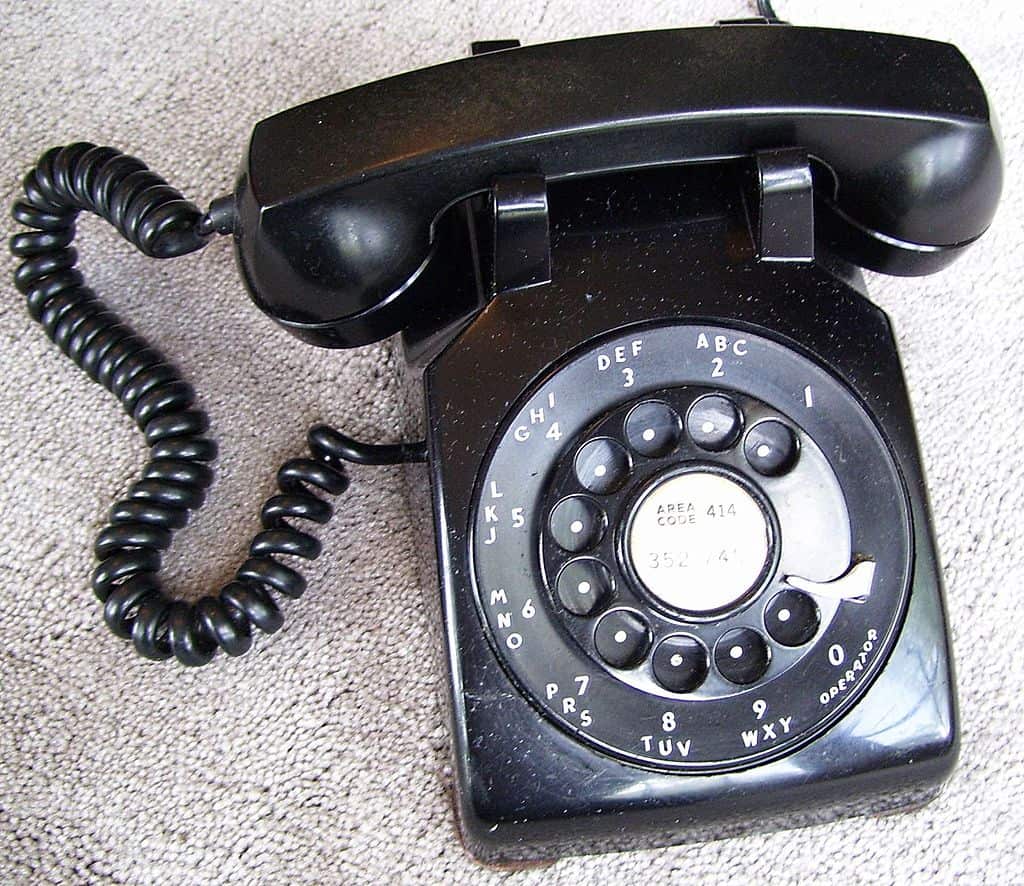
#7: Western Electric Type 1500
| Inventor | Western Electric |
| Year Produced | 1963 |
| Company | Western Electric |
| Country | USA |
| Year Patented | N/A |
The Western Electric 1500 was not the first touch-tone phone of its time but it was definitely one of the most popular. Just as iconic as the Type 500, the 1500 was essentially the same thing, only with touch-tone buttons rather than a rotary dial.
It’s hard to think of the 1500 as one of the oldest phones in history, simply because it’s so recognizable and the 1960s designs are easily more recognizable than inventions of the 19th century.
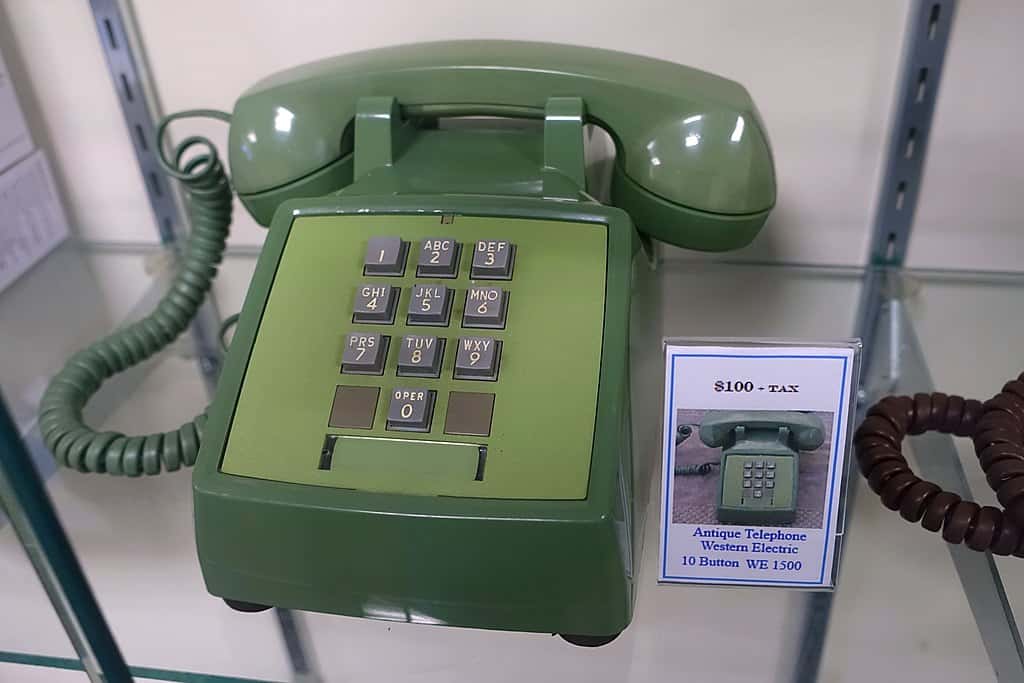
#8: DynaTAC
| Inventor | John F. Mitchell |
| Year Produced | 1983 |
| Company | Motorola |
| Country | USA |
| Year Patented | 1973 |
No list of the oldest phones in history would be complete without a cell phone in there somewhere. As it happens, mobile phones were around long before the DynaTAC. However, they were huge, took up a lot of trunk space, only worked in cars, and weighed about 80 lbs.
The DynaTAC was a three-pound monster of a phone. Ultimately, the phone was mass-produced and released in the 1980s, but Martin Cooper, an engineer and developer in the cellular technology industry, made the first phone call with what eventually became the DyneaTAC 8000x.
The retail price was nearly $4,000 and it cost roughly $100/mo to use. DynaTAC was far from the first mobile phone ever in use but, as far as history is concerned, it’s the one still receiving all of the accolades.
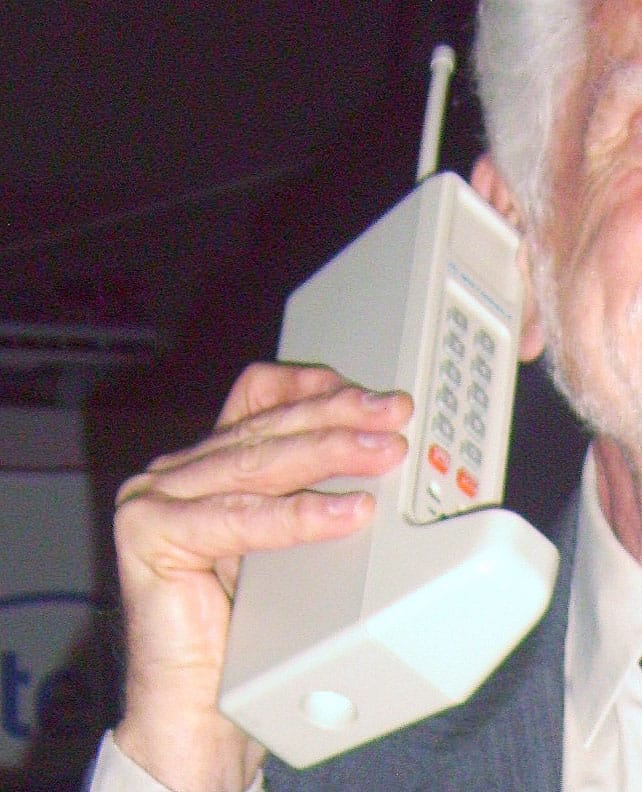
#9: Princess Phone
| Inventor | Henry Dreyfuss |
| Year Produced | 1959 |
| Company | Western Electric |
| Country | USA |
| Year Patented | 1959 |
The original princess phones came in pink, yellow, moss green, beige, turquoise, gray, ivory, and light blue and were heavily marketed to teenage girls. However, it became popular with adults as well, and the rest is history. It served as a precursor to the trimline phone and even included a backlight for the touch-tone pad or the rotary dial, as it came in both versions.
In fact, the princess phone became so popular that it remained in production until the mid-1990s. Another brainchild of Henry Dreyfuss, the princess phone was an excellent choice for bedside telephones with its small, compact design and backlight.
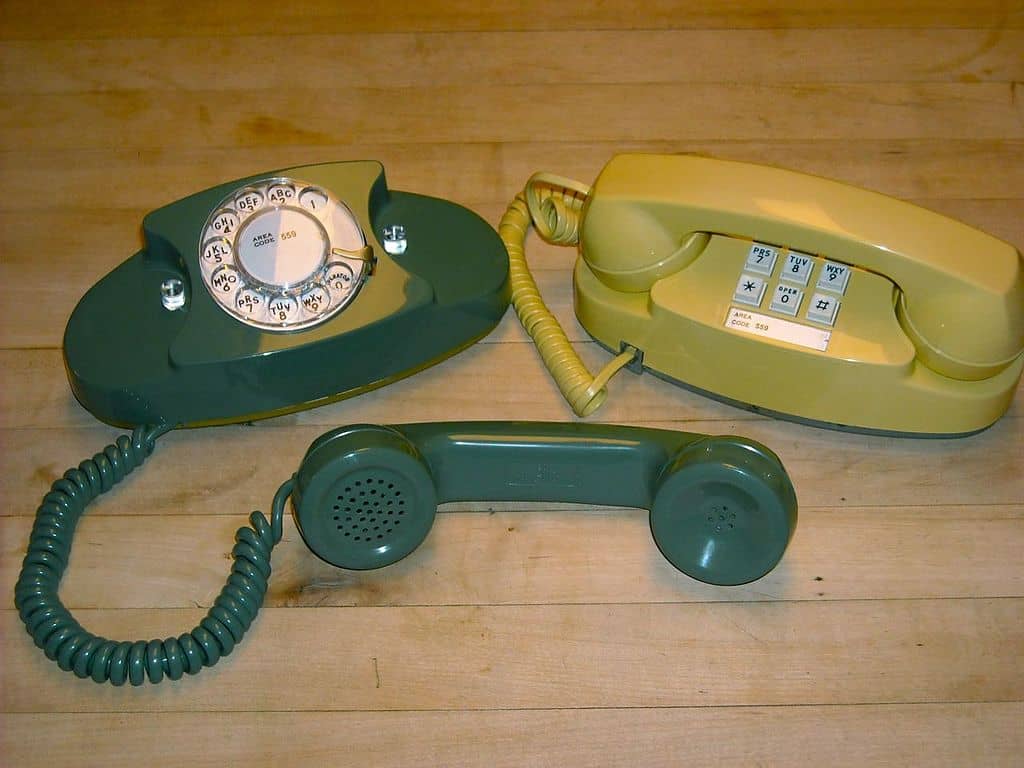
#10: Trimline Phone
| Inventor | Donald Genaro and Henry Dreyfuss Associates |
| Year Produced | 1965 |
| Company | Western Electric |
| Country | USA |
| Years Patented | Components patented in 1973 and 1974 |
The trimline phone wasn’t the first to feature a more modern, sleek appearance. That award goes to the princess phone, which arrived on the scene a few years earlier and from which the trimline phone is based. Western Electric wanted a phone that took the features of the princess phone and molded them into a sleeker, smaller profile.
These phones also came with a backlight so users could dial in the dark without missing a beat. Trimline phones also came in rotary dial models, simply because that style of phone was still relatively popular back in the 60s and 70s.
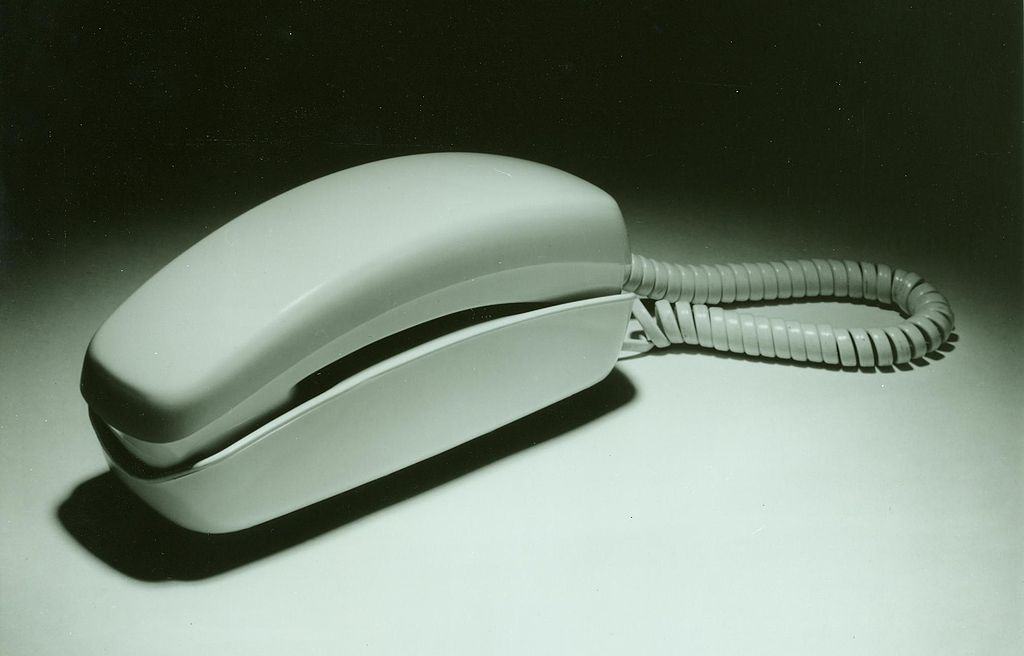
Wrapping Up
Looking at the oldest phones in history is a fascinating exercise in tracking technological advancements in communications for well over a century. People were trying to come up with innovative ways to talk across distances as far back as the 7th century.
Today, all of this is difficult to wrap your head around, and needless to say, we’ve come a long way! From the days of holding down a button to speak to someone else a couple of rooms away to the smart devices we walk around with in our back pockets, we owe it all to a few, innovative minds, some string, and a couple of tin cans.
The image featured at the top of this post is ©Everett Collection/Shutterstock.com.
